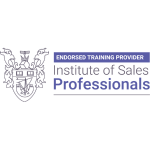
Building High-Performing Sales Teams: A Guide for Senior Sales Leaders
As a senior sales leader, you are responsible for driving the success of your sales team. But with so many challenges to face, it can be difficult to know where to start.
This guide will provide you with the insights and advice you need to build a high-performing sales team. We’ll cover topics such as skills development, fostering a culture of continuous improvement, aligning sales goals with company objectives, and using performance data for coaching.
1. Focus on skills development.
The best sales teams are made up of highly skilled individuals. To build a high-performing sales team, you need to invest in ongoing training and coaching for your team members. This will help them to develop the skills and knowledge they need to succeed.
Here are a few tips for investing in skills development:
- Create a training budget and allocate it to the areas where your team needs the most support.
- Offer a variety of training options, such as online courses, on the job coaching, workshops, and conferences.
- Encourage team members to pursue professional development opportunities outside of work.
- Provide coaching and mentorship to team members who need it.

2. Foster a culture of continuous improvement

The sales landscape is constantly changing, so it’s important to foster a culture of continuous improvement within your team. This means encouraging team members to learn from their lost deals, practice their pitches with the team lead or colleagues, and to always be looking for ways to improve their performance.
Here are a few tips for fostering a culture of continuous improvement:
- Create a feedback culture where team members feel comfortable giving and receiving feedback.
- Encourage team members to experiment with new approaches and to share their learnings with the rest of the team.
- Celebrate successes and learn from failures.
- Recognize and reward team members who are committed to continuous improvement.
- Make pitch practice fun by getting team members to do the scorings
3. Align sales goals with company objectives
Your sales team’s goals should be aligned with the overall objectives of your company. This will ensure that everyone is working towards the same targets.
Here are a few tips for aligning sales goals with company objectives:
- Make sure that your sales team understands the company’s overall objectives.
- Break down the company’s objectives into specific, measurable, achievable, relevant, and time-bound goals for your sales team.
- Communicate the sales team’s goals to everyone clearly and regularly.
- Track the sales team’s progress towards their goals and provide feedback as needed.

4. Use performance data for coaching

Performance data can be a valuable tool for coaching and developing your sales team. By analyzing metrics such as win rate, number of deals closed, and sales revenue, you can identify areas where salespeople need additional support. You can then use this information to develop personalized coaching plans.
Here are a few tips for using performance data for coaching:
- Collect performance data on a regular basis.
- Analyze the data to identify areas where salespeople need additional support.
- Develop personalized coaching plans for each salesperson.
- Meet with salespeople regularly to review their performance and provide coaching.
- Track the progress of salespeople over time and make adjustments to their coaching plans as needed.
By following these tips, you can build a high-performing sales team that is equipped to drive success for your company.
Case Study 1: Enhancing Market Presence Through Social Selling
Client Overview: A multinational technology company offering a diverse portfolio of products.
Challenge: Recognizing the imperative of leveraging social media for commercial objectives, the company identified the need to enhance its online presence. To equip its workforce for effective online interactions, the decision was made to introduce social selling training.
Solution: Collaborating closely with the company, our team developed and implemented a comprehensive social marketing training program. The program included modules on personal brand development, utilizing social media channels for lead generation, and building meaningful relationships with potential customers.
Implementation: Employees across departments actively participated in the training, dedicating time to understand and apply the techniques in their daily work. Integrated practical sessions ensured the transfer of knowledge into real-world applications.
Outcomes: Within a few months, the company experienced a notable increase in its social media following. The heightened staff participation on social media platforms contributed to an expanded audience for the company’s offerings, establishing a tangible value proposition.
Case Study 2: Elevating Customer Engagement in Telecommunications
Client Overview: A prominent telecommunications company with a focus on customer service excellence.
Challenge: Acknowledging the pivotal role of effective communication and problem-solving in customer engagement, the company sought to revitalize and upskill its contact center representatives. A comprehensive program was developed to infuse new energy and skills into the team.
Solution: Our collaborative efforts resulted in a tailored program focused on active customer engagement and advanced questioning skills. The objective was to transition the contact center from a reactive service model to a proactive problem-solving approach.
Implementation: The phased implementation of the training program seamlessly blended theoretical knowledge with practical exercises. Role-playing scenarios and real customer case studies were used to simulate authentic interactions. Continuous feedback and coaching sessions ensured practical application.
Outcomes: Contact center representatives demonstrated improved customer engagement and problem-solving capabilities. This translated into increased customer satisfaction scores and a more efficient resolution of customer issues, providing tangible value to the organization.
Case Study 3: Efficient Onboarding for Sales Acceleration
Client Overview: A dynamic software startup experiencing rapid growth.
Challenge: Faced with the imperative of reducing the time for new sales hires to contribute significantly to revenue, the company aimed to implement an efficient onboarding process to fast-track the learning curve.
Solution: Collaborating closely with the sales leadership, our team crafted a targeted onboarding program focusing on a comprehensive understanding of the product, refining sales skills, and seamless integration into the existing sales team.
Implementation: The onboarding program comprised a blend of classroom training, shadowing experienced sales professionals, and hands-on exercises through On-the-job training and coaching. Regular assessments and feedback loops were integrated to refine and optimize the onboarding process.
Outcomes: The streamlined onboarding process significantly reduced the time for new sales hires to achieve full productivity. This not only enhanced the company’s sales performance but also fostered a more cohesive and efficient sales team, delivering tangible value in terms of quicker revenue realization.
Conclusion: Building a high-performing sales team takes time and effort, but it is worth it. By following the tips in this guide, you can create a team that is equipped to drive success for your company.
Awards and Recognitions

Follow Us on LinkedIn
All Rights Reserved.

















